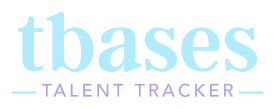Equal Opportunities/ Diversity Policy
We recognise that diversity and inclusion help to support creativity and innovation: they are an essential ingredient in a successful television company. We are committed to encouraging diversity and inclusion and promoting equality for all staff and job applicants. We aim to create a working environment in which all individuals are able to make best use of their skills, free from discrimination or harassment and in which all decisions are based on merit.
We do not discriminate against staff on the basis of age, disability, gender reassignment, marital or civil partner status, pregnancy or maternity, race, colour, nationality, ethnic or national origin, religion or belief, sex or sexual orientation (protected characteristics).
The principles of non-discrimination and equality of opportunity also apply to the way in which staff treat visitors, contractors, consultants, contributors, suppliers and former staff members.
All staff, whether employees or freelancers, full time or part time, temporary or longer term contracts, have a duty to act in accordance with this policy and treat colleagues with dignity at all times, and not to discriminate against or harass other members of staff, regardless of their status.
Scope and Purpose of the policy
This policy applies to all aspects of our relationship with staff and to relations between staff members at all levels. This includes job advertisements, recruitment and selection, training and development, opportunities for promotion, conditions of service, pay and benefits, conduct at work, disciplinary and grievance procedures, and termination of employment.
we will take appropriate steps to accommodate the requirements of different religions, cultures, and domestic responsibilities.
Forms of discrimination
Discrimination by or against an employee is generally prohibited unless there is a specific legal exemption. Discrimination may be direct or indirect and it may occur intentionally or unintentionally. Direct discrimination occurs where someone is treated less favourably because of one or more of the protected characteristics set out above. For example, rejecting an applicant on the grounds of their race because they would not “fit in” would be direct discrimination.
Indirect discrimination occurs where someone is disadvantaged by an unjustified provision, criterion or practice that also puts other people with the same protected characteristic at a particular disadvantage. For example, a requirement to work full time may put women at a particular disadvantage because they more often have greater childcare commitments than men. Such a requirement will need to be objectively justified.
Harassment related to any of the protected characteristics is prohibited. Harassment is unwanted conduct that has purpose or effect of violating someones dignity, or creating an intimidating, hostile, degrading, humiliating or offensive environment for them.Harassment is dealt with further in our Anti-harassment and Bullying Policy.
Victimisation is also prohibited. This is less favourable treatment of someone who has complained or given information about discrimination or harassment, or supported someone else’s complaint.
Recruitment and selection
We aim to ensure that no job applicant suffers discrimination because of any of the protected characteristics above. Our recruitment procedures are reviewed regularly to ensure that individuals are treated on the basis of their relevant merits and abilities. Job selection criteria are regularly reviewed to ensure that they are relevant to the job and are not disproportionate.
Staff training and promotion and conditions of service
staff training needs will be identified through regular staff appraisals. All staff will be given appropriate access to training to enable them to progress within the organisation and all promotion decisions will be made on the basis of merit.
Termination of employment
We will ensure that redundancy criteria and procedures are fair and objective and are not directly or indirectly discriminatory.
We will also ensure that disciplinary procedures and penalties are applies without discrimination, whether they result in disciplinary warnings, dismissal or other disciplinary action.
Disability discrimination
If you are disabled or become disabled, we encourage you to tell us about your condition so that we can support you as appropriate.
If you experience difficulties at work because of your disability, you may wish to contact your Line Manager to discuss any reasonable adjustments that would help overcome or minimise the difficulty.
Your Line Manager may wish to consult with you and your medical adviser(s) about possible adjustments. We will consider the matter carefully and try to accommodate your needs within reason. If we consider a particular adjustment would not be reasonable we will explain our reasons and try to find an alternative solution where possible.
We will monitor the physical features of our premises and other places of work to consider whether they place disabled workers, job applicants, service users or contributors at a substantial disadvantage compared to others. Where reasonable, we will take steps to improve access for disabled people to work in or with our company, both on and off screen.
Breaches of the policy
If you believe that you may have been discriminated against you are encouraged to raise the matter through our Grievance Procedure. Allegations regarding potential breaches of this policy will be treated in confidence and investigated in accordance with the relevant procedure. Staff who make such allegations in good faith will not be victimised or treated less favourably as a result. False allegations which are found to have been made in bad faith will, however, be dealt with under our Disciplinary Procedure.
Any member of staff who is found to have committed an act of discrimination or harassment will be subject to disciplinary action. Such behaviour may constitute gross misconduct and, as such, may result in summary dismissal. We take a strict approach to serious breaches of this policy.
We will:
- Actively seek to increase the number of people we work with from groups and communities that are under-represented in the television industry as a whole, or in particular job roles in the industry.
- Identify and take opportunities to increase the diversity of casting decisions.
- Actively seek to increase the diversity of our talent networks.
- Create an environment in which individual differences and the contributions of all our staff and freelancers are recognised and valued.
- We have set ourselves the following diversity target: 20% of our workforce to be from under-represented groups, to drive change in off-screen representation.
We will monitor the success of this policy regularly and our review our progress at least once a year. The person who is responsible for ensuring this action plan is implemented is Clare Voyce, Managing Director.




